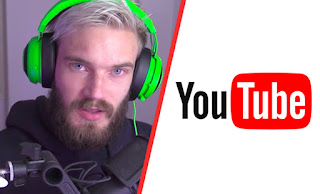Where is the line drawn to what is
acceptable to post online and what is not? As a person who doesn’t use social
media unless to communicate to long distance friends and family, this line is
clear. My social media is used to show my friends and family good memories I
experience as I come across them. While post worthy events might not come along
often, I use them to make my followers at ease that I at least have some social
interaction. For most of my generation, how ever this line becomes blurry and
moves across a large spectrum.
One topic that I consider sensitive
to talk about online is relationships and their status. Some people consider it
a BIG deal to make things “Facebook official” and other people refuse to post
anything about their relationships online and both have valid arguments as to
which side they belong to. Online relationships have become a new fad to the
younger generations and want to exploit all of their romantic adventures.
Vlogging, a new medium for blogs where they are formatted in video form are all
the rage for young couples to show the world their relationship. People have
become crazed with the concept of online couples and “shipping” or
metaphorically placing people together. I myself as a young teen had my share
of “ships”, hoping and praying that my two favorite bloggers would someday
announce their secret undying love for each other, which sadly never happened.
One example of this would be popular vloggers, Liza Koshy and David Dobrik.
Liza and David were the power couple of the vlog universe and would frequently
post videos of them just enjoying their time together. Many would think, “well
who would want to watch two kids be crazy?” however the couple shared over 21
million followers on Youtube. When the couple posted the video “we broke up," many people’s world was shattered. The
couple posted a video releasing that they had broken up six months prior and
had a heartfelt conversation of why it was for their best interest. So, is this
appropriate content that the world should be watching? These people just poured
out their hearts and people were so invested that the video currently holds
over 49 millions views. Some people would argue that this video was going over
the top and using the breakup to gain more views and being narcissistic, but this
relationship was this couple’s livelihood and they were risking it all by
disclosing their relationship status. Humphreys states that vlogs have
“presentism…[which] gives the text veracity and authenticity” which means that
posts are often made recently after an event making the memory clear and fresh
(Humphreys 33). They didn’t only put the video up for the fans, but for
themselves. Vloggers must, “be conscious and considerate of your audience and
it’s needs, rather than getting mired in your own egotism or insecurity”
(Humphreys 44). They didn’t want to be lying to their viewers and hoped that
they would still show them live and support through this difficult transition. There have been other forms of media that may
have stepped over the confidentiality line, like the Scott Simon tweets we
examined.
Scott Simon is a radio talk show
host on NPR who lost his mother in 2013. He raised many eyebrows from his
tweets that consisted of the story of the end of his mother’s life. Simon was
in a fragile state, as one would be when their mother falls deathly ill, but he
decided to console himself with the help of his online presence and community.
He informed Twitter of his every move of this grief filled process of his
mother’s last days including the hospital visits up until her passing. People
had different opinions of this string of tweets; many described these tweets as
raw human emotion however uplifting, but others complained that it was insensitive
of him to post such a painful time. I believe that Simon posting these tweets are part of his “I” over
his “me” as described by Mead’s concept of symbolic interaction. These posts
were a part of Simon’s grief process and were a tool used to console himself
and others going through similar losses, not for narcissistic reasons which can
be “characterized by a therapeutic sensibility… and focuses on the self rather
than community” according to Christopher Lasch (Humphreys 44). While not
everyone supported this act, the number of people who supported Simon and
offered their condolences far outnumbered those that did not. Deaths are hard
to take in, but Simon did the right thing by expressing himself openly to gain
the support of his valued fans.
Our online diaries can be used in
an infinite amount of ways; from food blogs to breakups. The internet will
continue to surprise us with the sense of community it shares over all topics. Everyone
has their own opinion and values of their posts online as well as the
sensibility to post only what they are comfortable with, so we can conclude
that there is not a line that can be crossed to what should remain public or
private.










